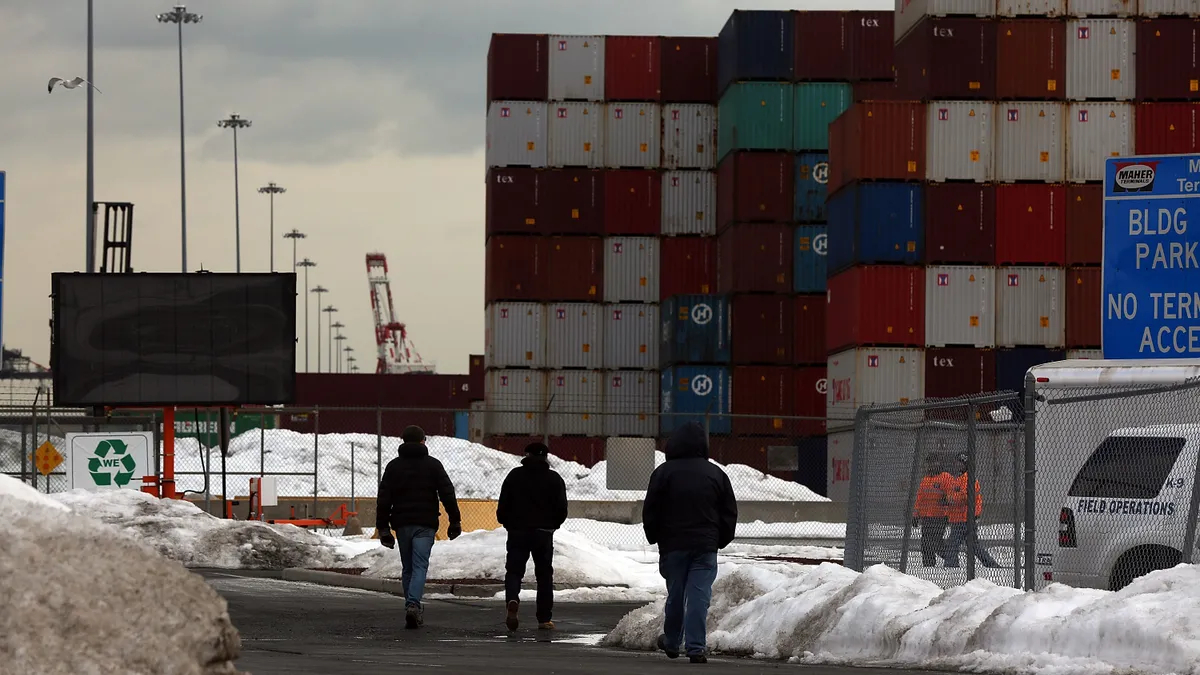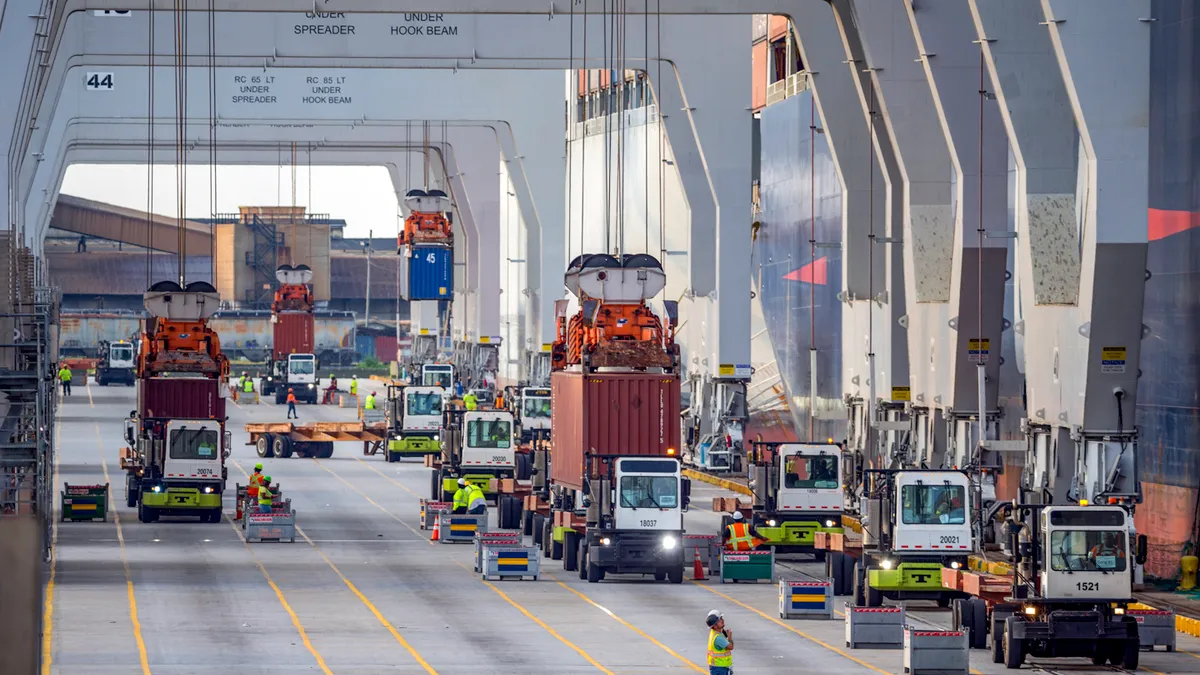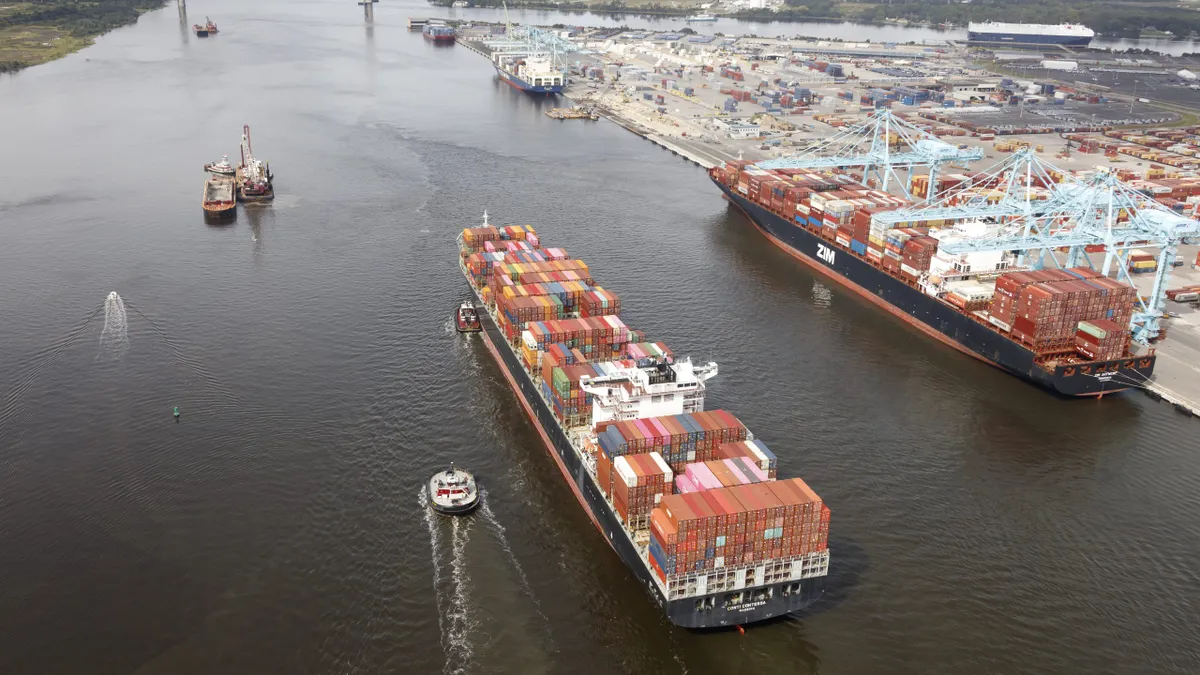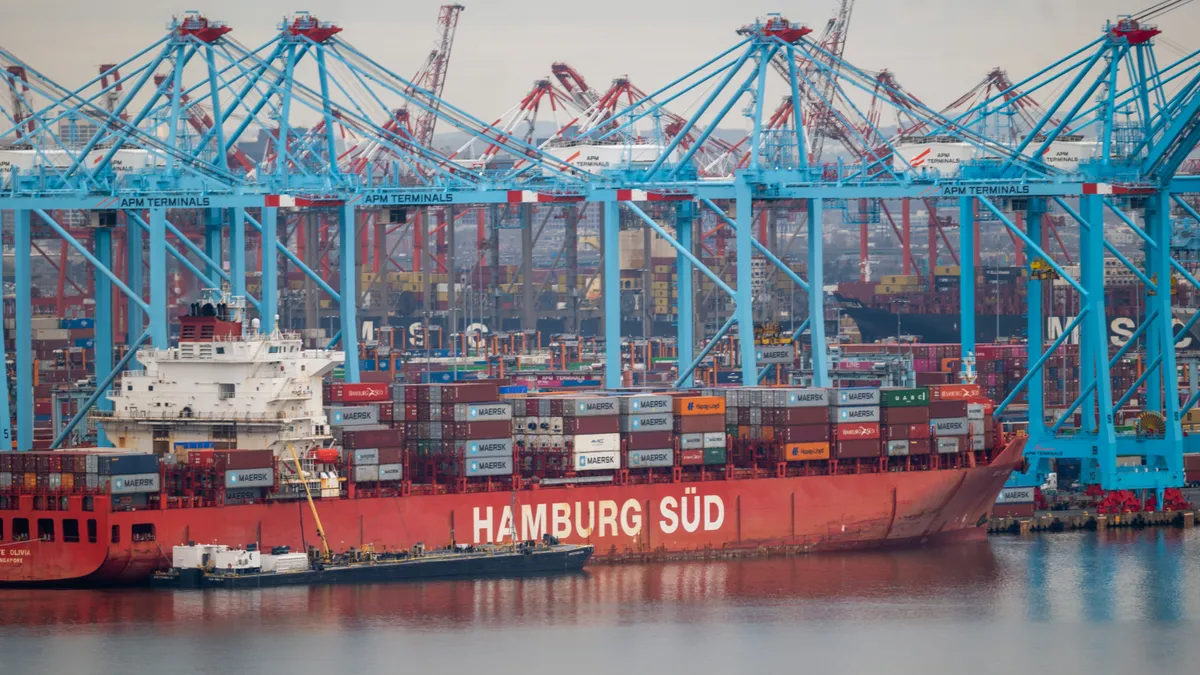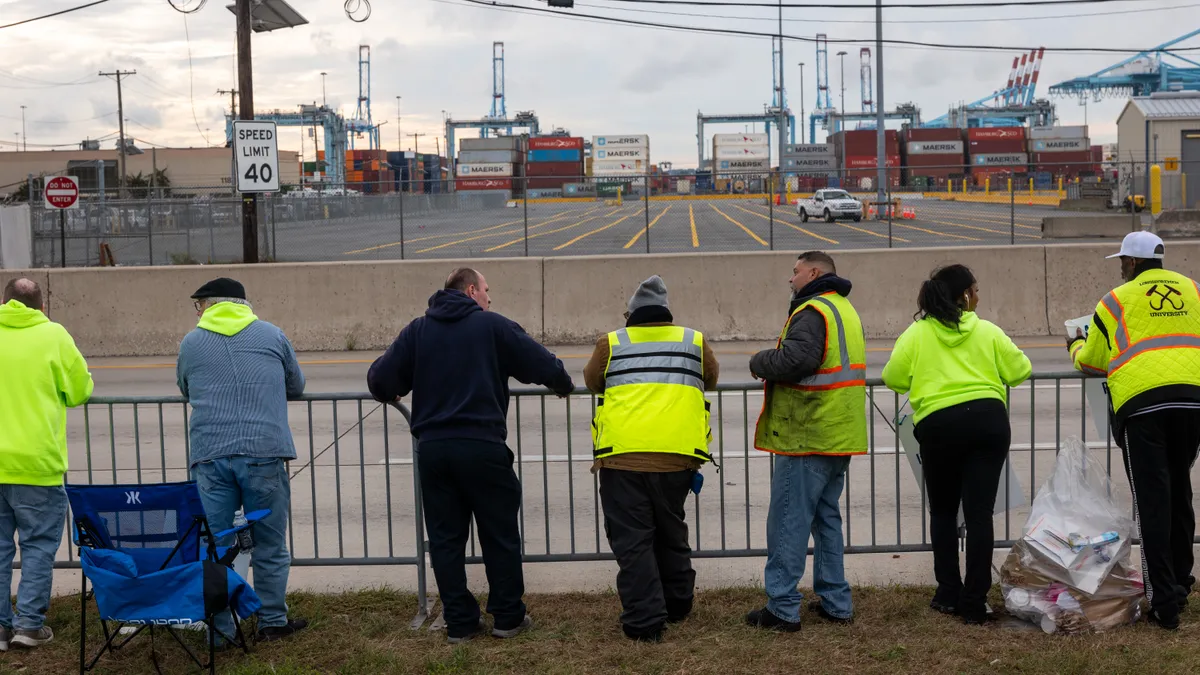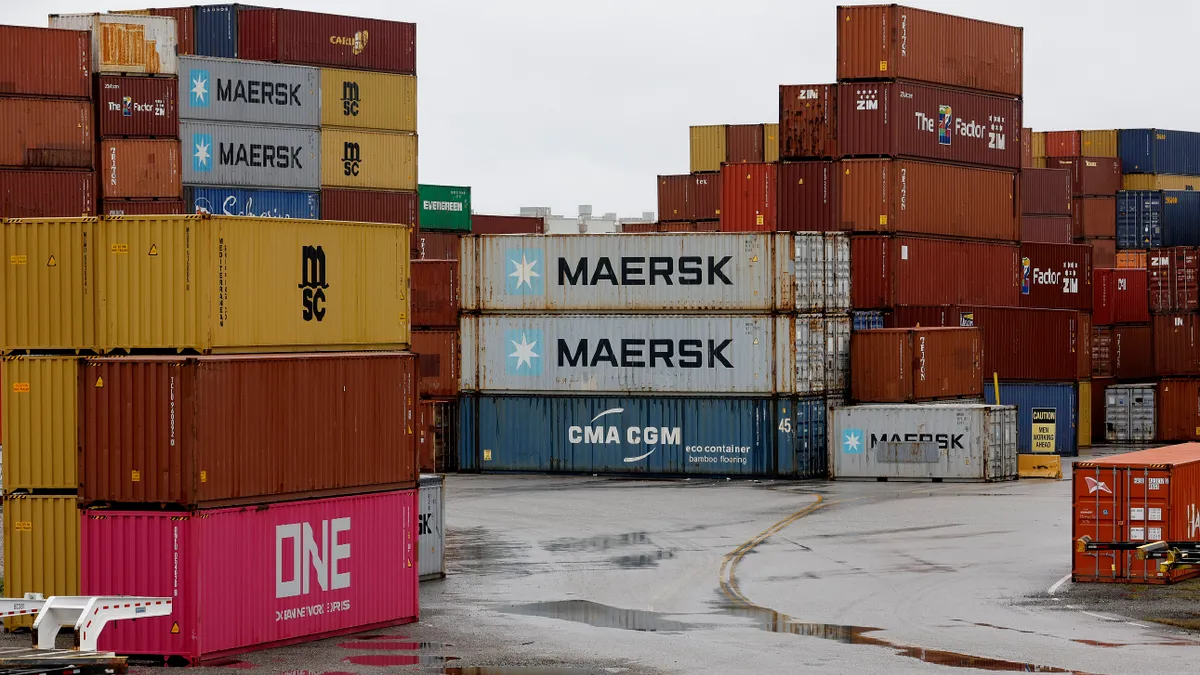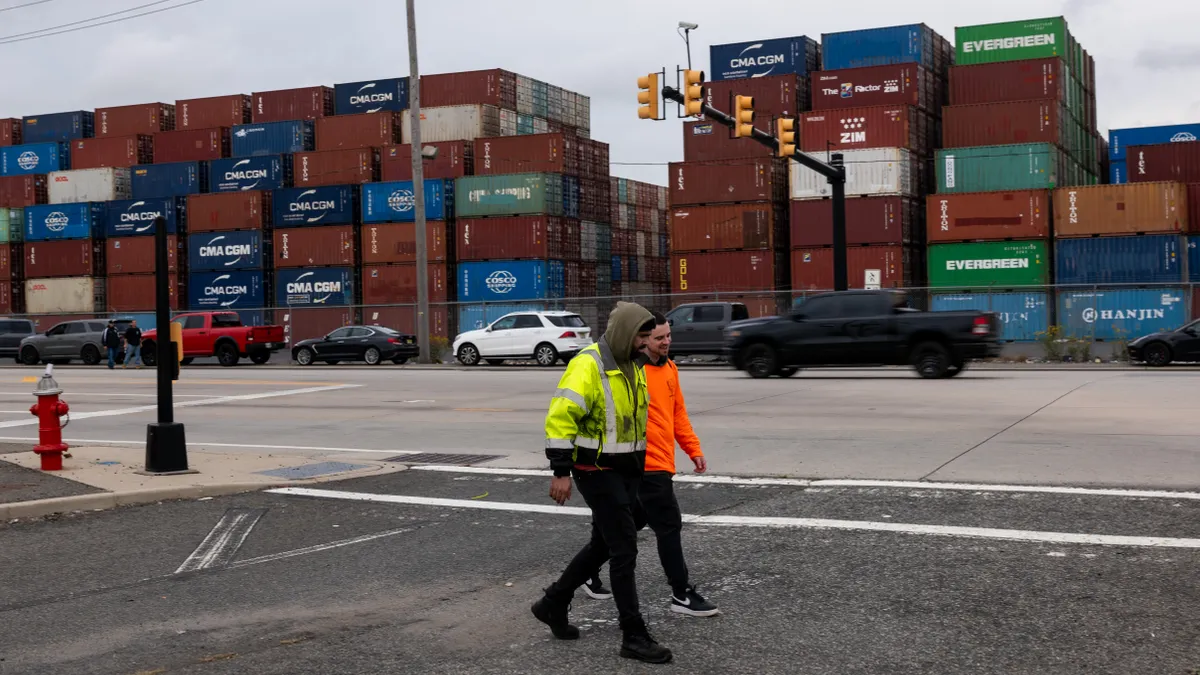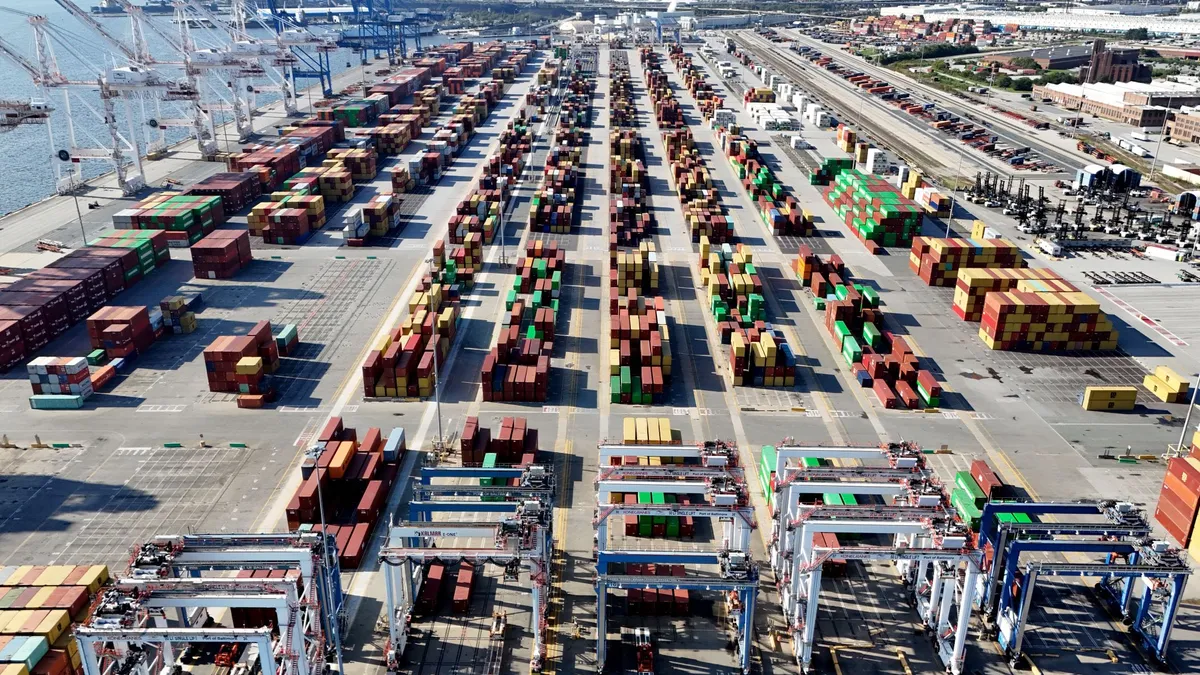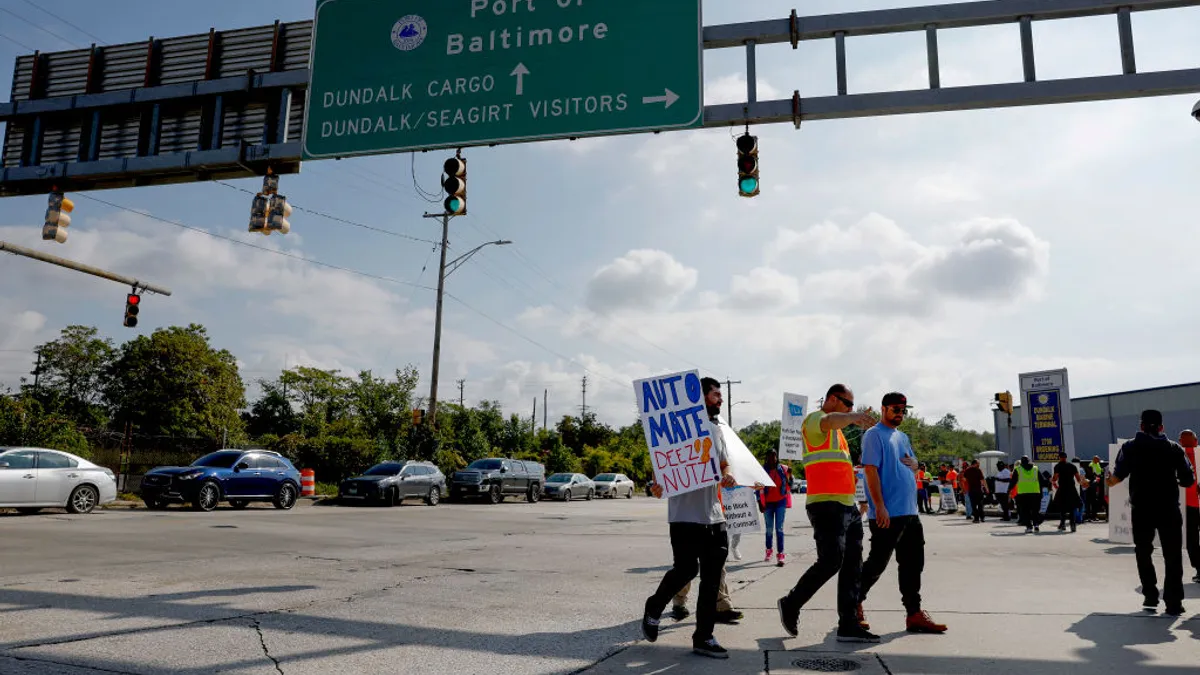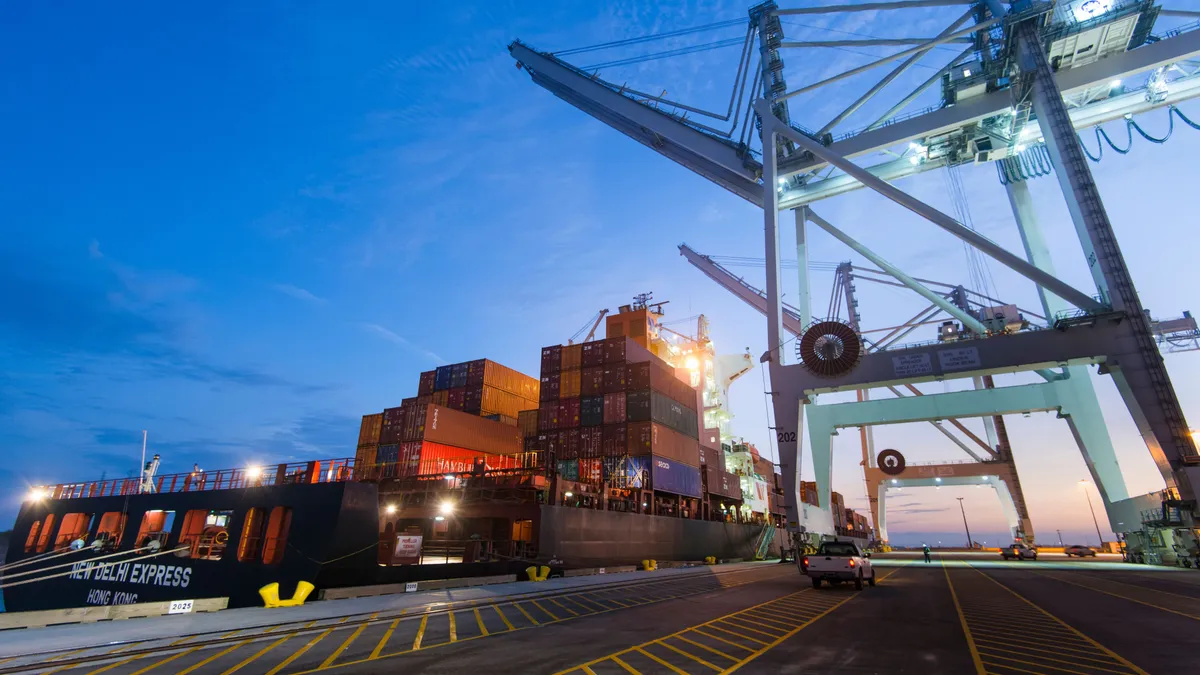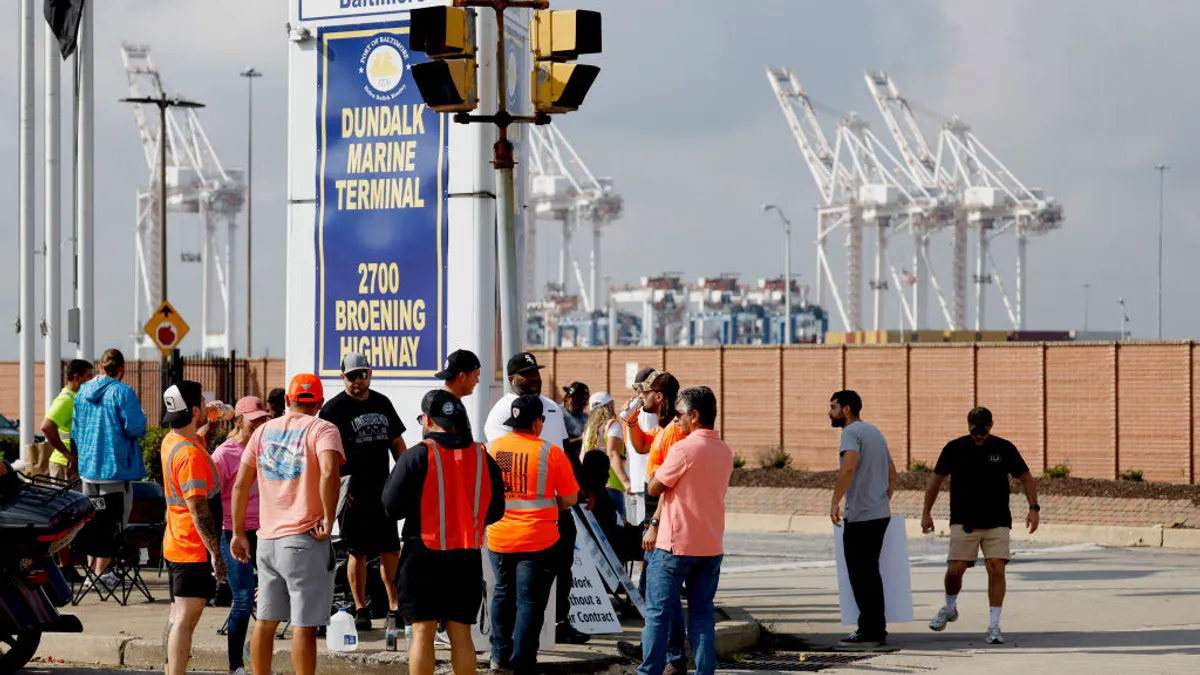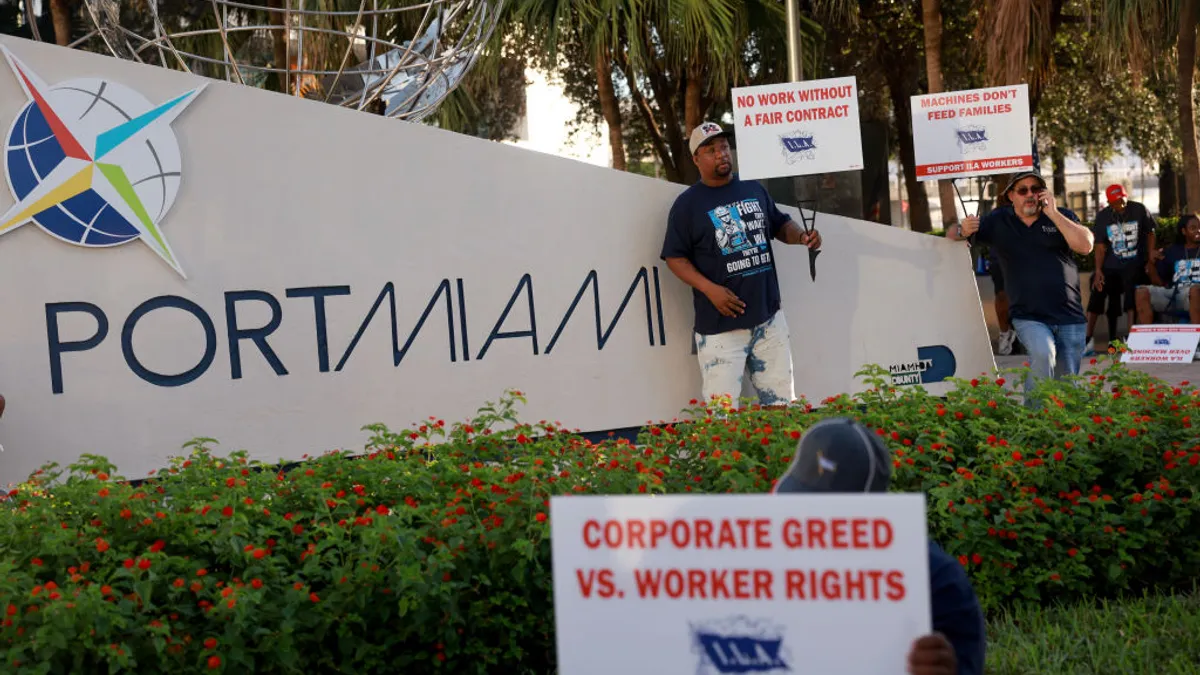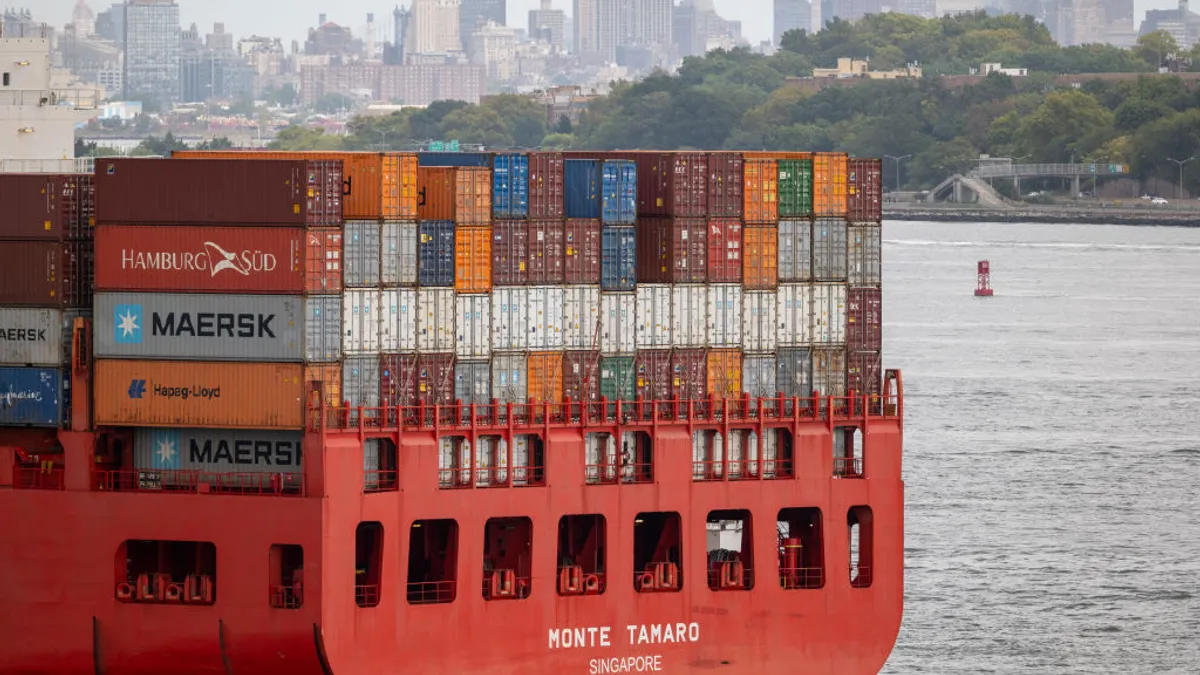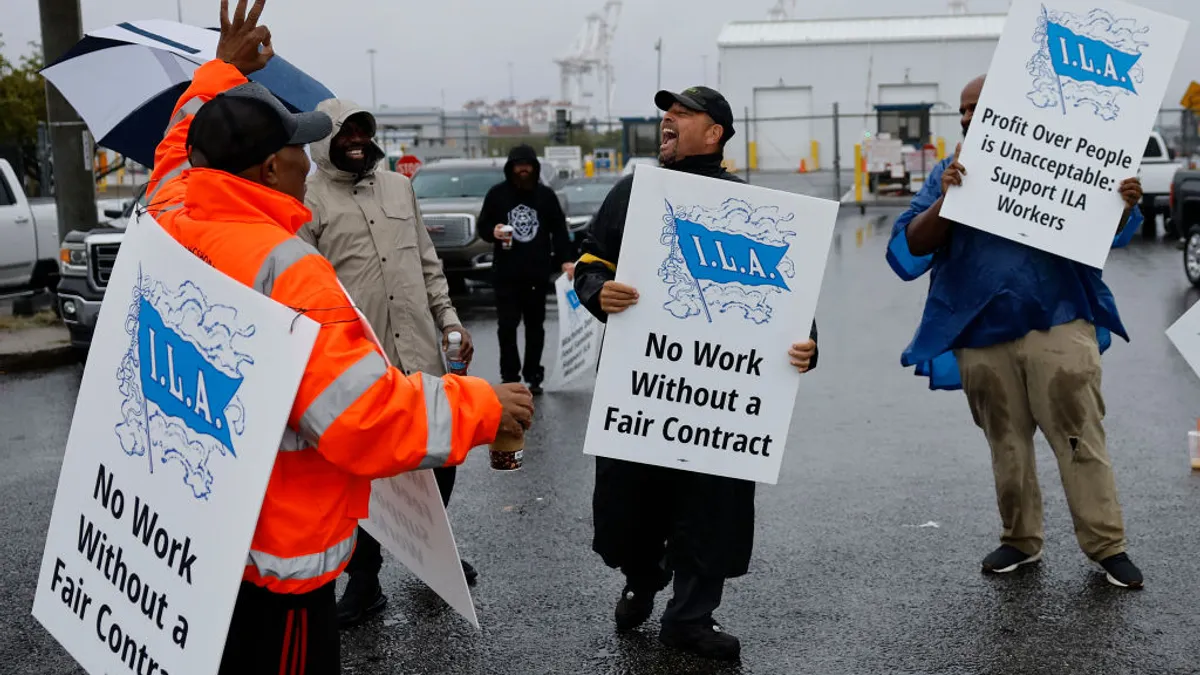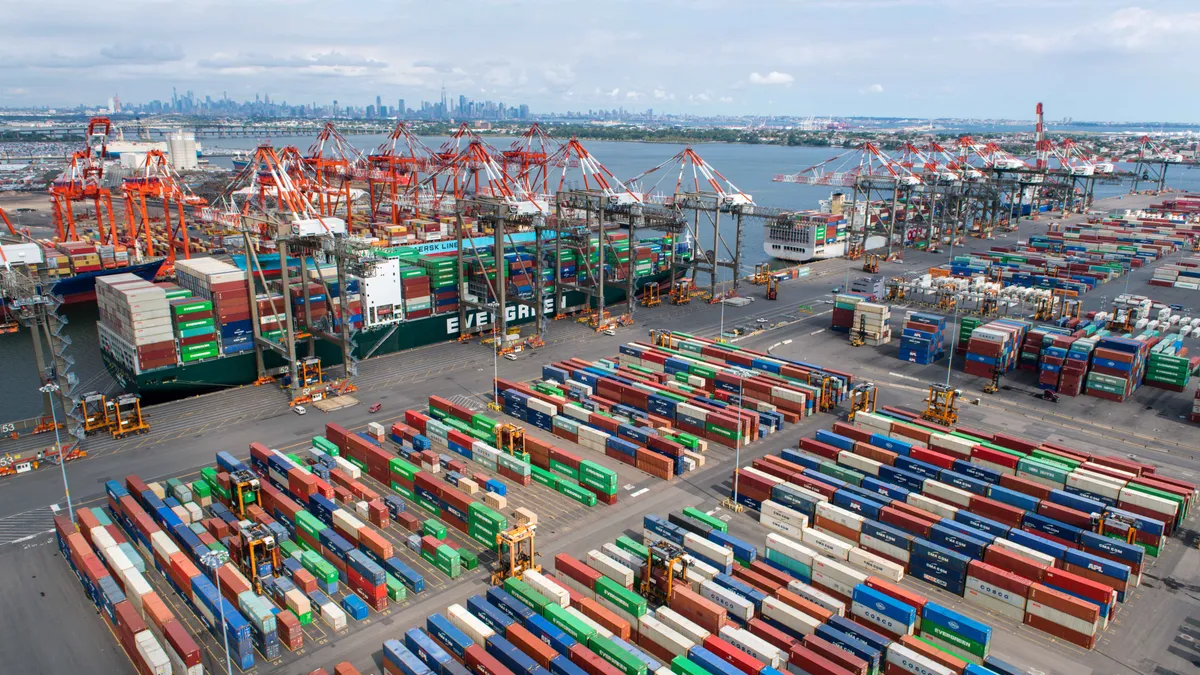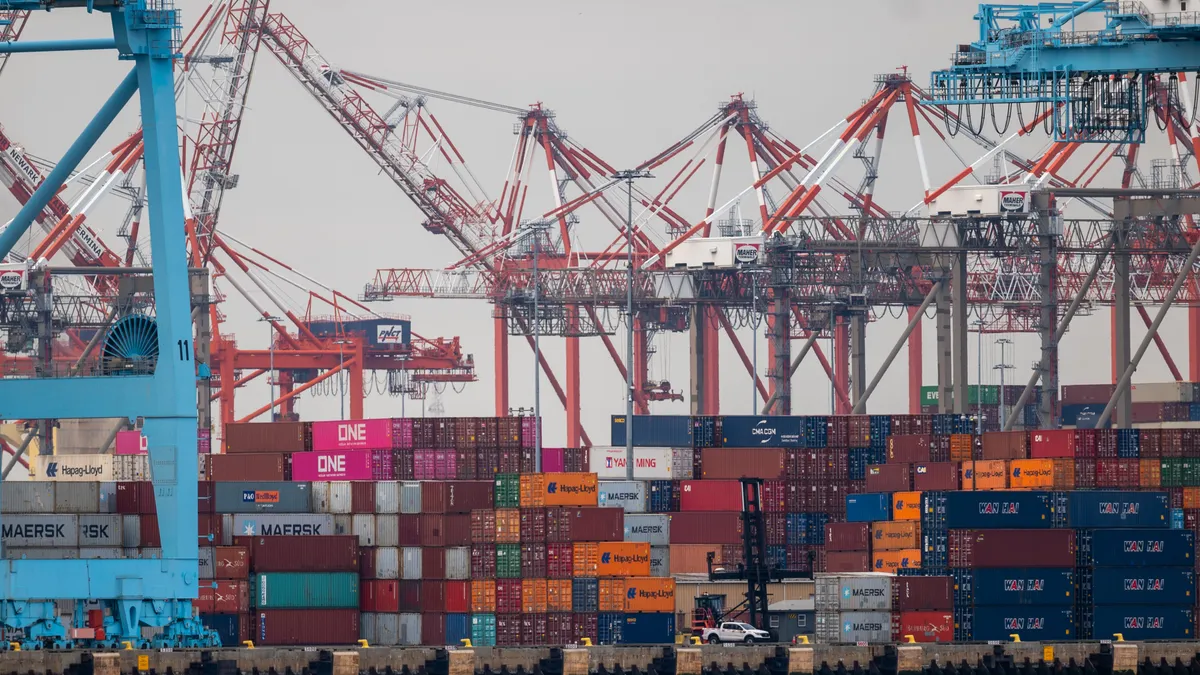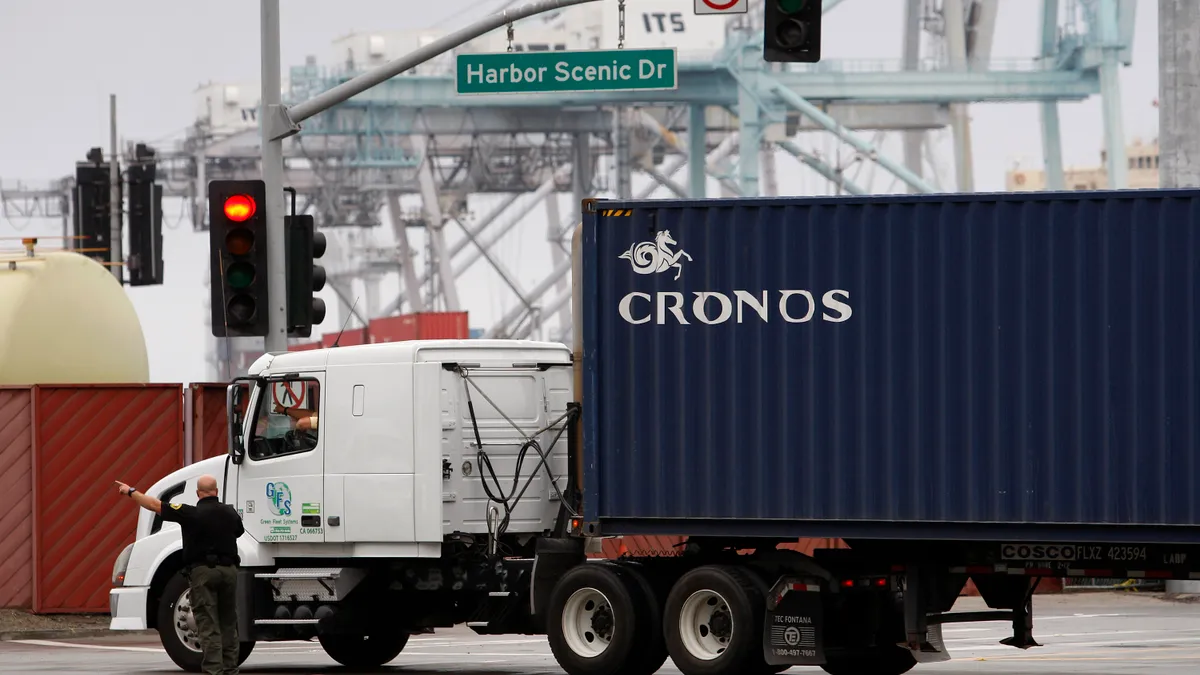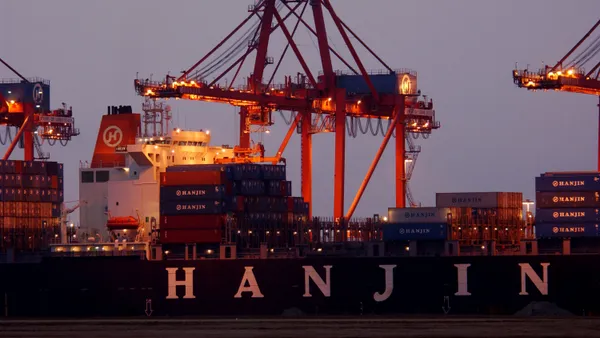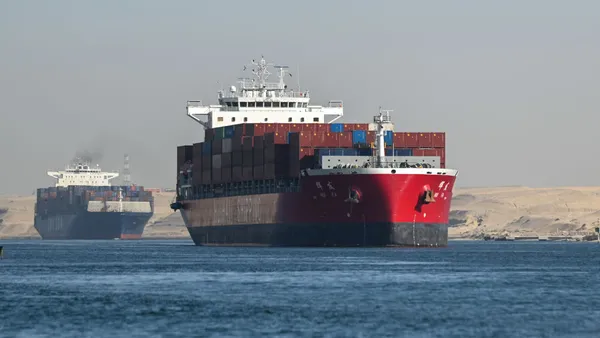East and Gulf Coast ports are taking action ahead of a potential labor strike.
The International Longshoremen's Association may strike if its master contract with the United States Maritime Alliance is not renewed by Sept. 30. A strike or work stoppage would cause several marine terminals to close across ports in the East Coast and Gulf Coast, limiting the amount of cargo that can be processed.
Ports are preparing in several ways. Many of them are sharing daily advisories about their contingency plans. Others are extending gate hours, ahead of a potential work stoppage.
Supply Chain Dive tracked down the plans from several of the nation's top ports in the affected regions. Read on to see what shippers need to keep in mind this week as they finalize logistics plans.
Port of New York and New Jersey
The East Coast port is working to process as many ships as possible to ensure an orderly shut down, according to Beth Rooney, port director at the Port Authority of New York and New Jersey.
“At the same time ocean carriers are beginning to put, essentially, embargoes on export cargo so that it doesn't come into East and Gulf Coast ports and then wind up sitting there,” she said during a press conference last week. Several carriers did not immediately reply for comment about possible embargoes.
The port will have extended gate hours in most of its terminals, offering weekend availability to process cargo at APM Terminals and Port Newark Container Terminal, according to the port’s operational plan shared on Monday.
If a strike happens, all cargo activity, including containerized and automobile volumes, will cease. Cruise ships, however, will continue to operate.
Georgia Ports Authority
In Georgia, the Port of Savannah’s Garden City Terminal is keeping extended weekend gate hours for trucks. This enables them to move cargo prior to Oct. 1, according to a Sept. 18 customer advisory.
Normal gate hours are Monday through Friday from 4 a.m. to 6 p.m. ET, but this weekend they will be open on Saturday and Sunday from 8 a.m. to 5 p.m. ET.
The port will receive export cargo and reefers up to Sept. 30 and will not charge for storage during a work stoppage, but shippers should be aware that free time is still being accumulated. Refrigerated cargo will still be processed, but the port said it is not responsible for damage of goods during a strike.
The Port of Savannah's Ocean Terminal and Port Brunswick had not published plans for extended hours as of Wednesday.
Port Houston
If a work stoppage occurs, Port Houston will close Barbours Cut Container Terminal and Bayport Container Terminal for all container handling operations, the port said in a statement. However, the Gulf Coast port will receive export cargo through Sept. 30 until 7 p.m. CT.
The port will continue maintenance and provide other support services for its customers in the case of a work stoppage. Port Houston’s general cargo and multipurpose facilities at Turning Basin Terminal will not be disrupted during a work stoppage.
South Carolina Ports Authority
South Carolina Ports Authority will offer extended gate hours based on demand, the port said in a Sept. 20 advisory. In the next few days, it will focus on measures to ensure optimum terminal performance — such as full staffing, yard equipment availability and surplus inventory of the South Carolina Maritime Chassis: SMART Pool. The program is the port’s proprietary chassis service.
Container storage charges will be waived during any stoppage and SMART Pool chassis billing will be paused for any units out-gating from Charleston locations.
On Saturday, Sept. 21, the port offered extended gate hours from 6 a.m. to 5 p.m. ET at the Wando Welch Terminal and North Charleston Terminal, but future extended gate hours are yet to be announced.
The Port of Virginia
The Port of Virginia said it will extend gate hours from Sept. 28 to Sept. 29, in an operational update shared Monday.
If a strike occurs, the port will halt cargo operations on Sept. 30 affecting Virginia International Gateway and Norfolk International Terminal.
Other support operations at the Pinners Point Container Yard, Portsmouth Chassis Yard, Reefer Service Area and the Damage Annex will also halt cargo operations.
Richmond Marine Terminal, Portsmouth Marine Terminal and Virginia Inland Port will operate normally.
Since all terminal operations will cease if a work stoppage occurs, shippers are advised to consult their ocean carrier directly to confirm its free-time policy.
Jacksonville Port Authority
Due to Jacksonville Port Authority’s diversified trade lanes, the port expects about one-third of business to be affected, a spokesperson told Supply Chain Dive in an email.
International containers and vehicle volume at Blount Island Marine Terminal and Dames Point Marine Terminal are expected to be primarily impacted, while Puerto Rico cargo flow will continue as normal.
Jaxport’s has 172 direct employees that are not ILA members. This means main gates and administrative functions will remain open during normal operating hours.
Since terminal operators establish their own operating hours, the port recommends shippers to contact their specific marine terminal operators. Jaxport’s contact list of terminal operators can be found here.
North Carolina Ports
North Carolina Ports is offering extended gate hours on Sept. 28 from 8 a.m. until 12 p.m. ET and then 1 p.m. until 5 p.m. ET, the port said in a customer advisory.
General cargo operations at the Port of Wilmington’s north gate and Port of Morehead City will operate a normal schedule during the week of Sept. 30 to Oct. 4, the port said in an email on Wednesday.
If a work stoppage occurs, the Port of Wilmington’s south container gate will be closed starting Oct. 1. All vessels are expected to complete work by 11:59 p.m. ET on Monday, Sept. 30. Rail operations will also be halted and free time billing will be paused during a work stoppage, the port said in an emailed advisory on Monday.








